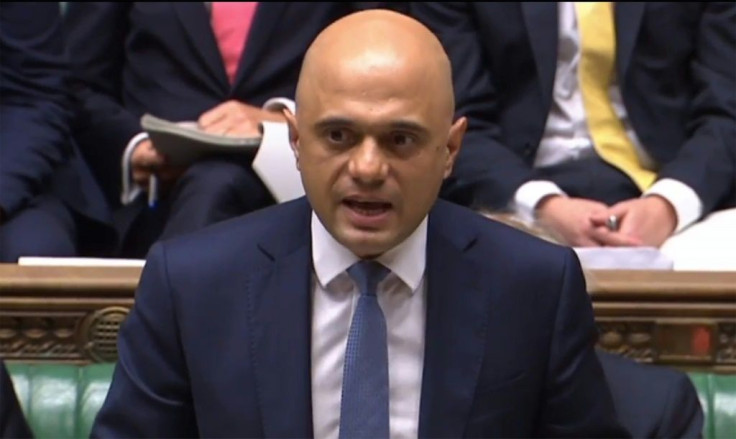Will UK Chancellor's Flip-Flop Over Post-Brexit EU Alignment Delay Trade Deal With US?

KEY POINTS
- Sajid Javid reverses stand week after claiming no EU alignment
- Chancellor Javid says all steps to reassure U.K. businesses taken
- Javid tries to address panic among businesses fearing clean EU break
U.K. Chancellor of the Exchequer Sajid Javid’s apparent flip-flop over post-Brexit alignment with European Union (EU) trade policies may complicate discussions for a trade deal with the U.S. Although Chancellor Javid was calming the nerves of British businesses worried about a clean break, Treasury Secretary Steven Mnuchin is unlikely to be amused. The U.S.-U.K. trade relations have already hit a low after London’s decision to tax the digital services of U.S. giants.
Secretary Mnuchin has threatened to slap stiff tariffs on mainly automobile imports when U.K. carmakers are facing a prolonged recession forcing employee lay-offs.
At Davos, Switzerland, for the World Economic Forum (WEF), barely a week after announcing a clean break with EU trade policies, Chancellor Javid reversed the stand and said where the policies would be beneficial to the U.K. businesses the U.K. policies would continue to align with the EU.
U.K. business leaders staring at the post-Brexit uncertainty have welcomed what they call the clarification of the earlier government's view that there would be “no alignment” with EU rules in a trade deal with the EU, a report on the BBC website said.
Businesses had assumed the U.K. would stay closely connected to European rules and standards, where the industry needed it, the report said.
Answering questions from U.K. chief executives at a Davos lunch engagement, Chancellor Javid said that although the U.K. could not be a rule-taker, for democratic reasons, “it doesn't mean we will diverge for the sake of it”.
Business group- the Confederation of British Industry welcomed the clarification that there could be continued alignment for the car or chemicals industry. “It’s good to have clarification that in terms of divergence from the EU, that will be when it is in the economic interests of the country. It is not an obligation, it’s a right we can use if we need to use it,” Carolyn Fairbairn, the CBI chief and host of the lunch, told the BBC.
Some attendees said they made it clear to the Chancellor that unnecessary friction in manufacturing supply chains would reduce, not increase investment spending, the report said.
The proposed digital tax has added a raw edge to the trade negotiations between the U.S. and the U.K. that was expected to conclude this year. Secretary Mnuchin has already threatened tariff pain against London, which is in line with the approach Washington took toward France. After the U.S. slapped tariffs on French wine and cheese, Paris agreed to suspend the digital tax pending further talks.
Washington has also expressed displeasure at London’s move to involve Chinese telecom giant Huawei in installing a 5G mobile network in the U.K. The U.S. has cracked down on Huawei alleging spying on behalf of Beijing and has sought the extradition of a top Huawei executive now detained in Canada.
© Copyright IBTimes 2024. All rights reserved.




















